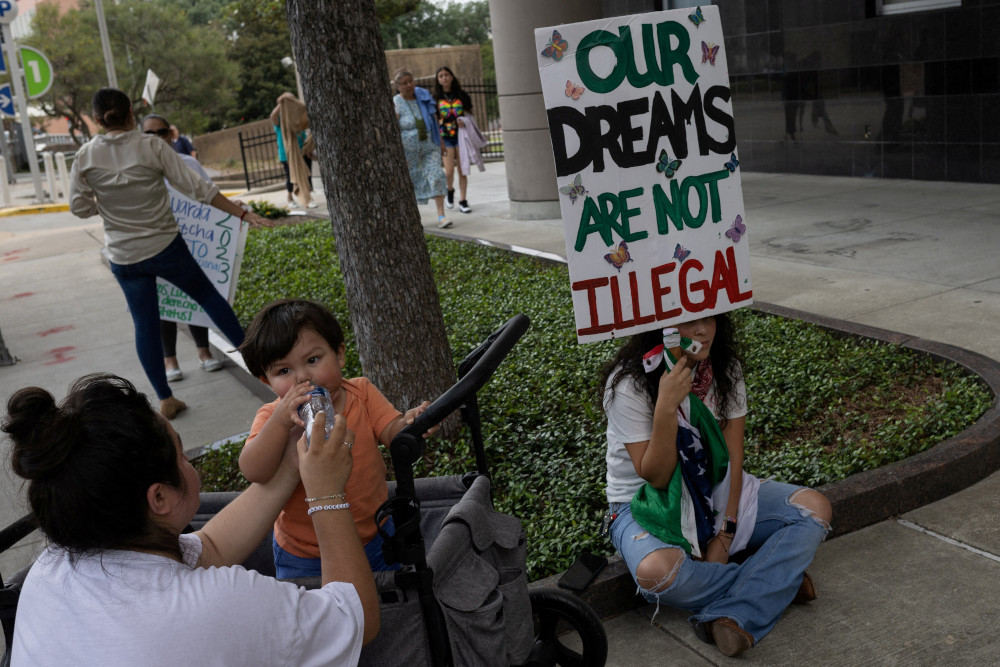In a recent development, U.S. District Judge Andrew Hanen, based in Houston, has ruled against the Deferred Action for Childhood Arrivals (DACA) program, stating that it is illegal. This ruling came in response to a lawsuit filed by Texas and eight other states seeking to halt the program. This decision is expected to be appealed, potentially leading to the program’s fate being decided by the U.S. Supreme Court for a third time.
Judge Hanen’s ruling prohibits the government from approving new DACA applications but allows the program to continue for existing recipients while the appeals process unfolds. It’s worth noting that his order does not mandate any actions against current DACA recipients.
The core argument from the states opposing DACA is that the program, initiated in 2012 during the Obama administration, was established without proper authority and circumvented Congress. In 2021, Judge Hanen declared DACA illegal, citing the lack of public notice and comment periods, as required under the federal Administrative Procedures Act.
In response to Hanen’s concerns, the Biden administration implemented a revised version of DACA in October 2022, which underwent a formal rule-making process with public comments. However, Judge Hanen, who was appointed by former President George W. Bush, maintained that the updated DACA was still illegal. He previously asserted that DACA was unconstitutional and argued that it was Congress’s responsibility to pass legislation to protect DACA recipients, often referred to as “Dreamers.”
Judge Hanen had previously ruled that the states had standing to file their lawsuit because they incurred significant costs, including healthcare and education, when immigrants were allowed to remain in the country illegally. The states involved in the lawsuit are Texas, Alabama, Arkansas, Louisiana, Nebraska, South Carolina, West Virginia, Kansas, and Mississippi.
On the other side, those defending the DACA program, including the federal government, the Mexican American Legal Defense and Educational Fund, and the state of New Jersey, contended that the states failed to provide evidence linking their alleged costs to DACA recipients. They also argued that Congress had granted the Department of Homeland Security the legal authority to establish immigration enforcement policies.
Despite his previous declarations that DACA was illegal, Judge Hanen had allowed the program to continue for existing beneficiaries while blocking new applications during the ongoing legal proceedings.
As of the end of March, there were 578,680 individuals enrolled in DACA, according to U.S. Citizenship and Immigration Services.

The DACA program has faced a series of legal challenges over the years. In 2016, the Supreme Court reached a deadlock (4-4) on an expanded DACA and a version of the program for parents of DACA recipients. In 2020, the high court ruled (5-4) that the Trump administration had improperly terminated DACA, allowing it to remain in place.
In 2022, the 5th U.S. Circuit Court of Appeals in New Orleans upheld Judge Hanen’s previous ruling that DACA was illegal. However, the case was sent back to him to review changes made to the program by the Biden administration.
Both President Joe Biden and advocacy groups have called on Congress to pass permanent protections for “dreamers.” Nevertheless, multiple attempts to pass legislation such as the DREAM Act, aimed at safeguarding DACA recipients, have failed in Congress.